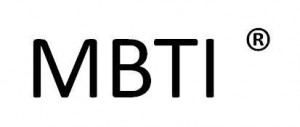
Aristotle said knowing yourself is the beginning of all wisdom.
Sounds like good advice from someone who should know.
What steps can you take then to get to know yourself?
One of the best-known and most popular steps is to complete the Myers-Briggs Type Indicator ® (MBTI ®) assessment; something 3.5 million people do each year.
The MBTI assessment came about from the work of Katharine Cook Briggs and her daughter, Isabel Briggs Myers. They began work on the indicator during World War II after they became frustrated at the number of women doing war-time jobs to which they were ill-suited. Both mother and daughter thought this was a waste of human potential.
Their aim was to create an Indicator that would give as many people as possible the opportunity to know their psychological type. And, with that knowledge they hoped individuals would go on to achieve their full potential.
In creating the Indicator, they built on the ideas of Swiss psychiatrist Carl G. Jung to devise a questionnaire that could identify people as one of 16 different personality types:
| ISTJ | ISFJ | INFJ | INTJ |
| ISTP | ISFP | INFP | INTP |
| ESTP | ESFP | ENFP | ENTP |
| ESTJ | ESFJ | ENFJ | ENTJ |
The letters that make up each personality type come from four pairs of MBTI dichotomies. Where, according to Jung’s theory, we have an innate preference for one from within each pair.
Extroversion (E)
You prefer to draw your energy from the world around you, from doing, from involvement in external events and contact with people.
Sensing (S)
You prefer attending to specific information and facts to establish what is actually happening. You are observant of what is going on around you and very focused on the practical realities of a situation.
Thinking (T)
You prefer making decisions from a detached standpoint, by analysing the logical consequences of a choice or action. You apply objective criteria and use consistent rules and principles. You often try to stand outside a situation to examine it objectively and analyse cause and effect.
Judging (J)
You prefer coming to closure on decisions, preferring to live life in scheduled and orderly ways and wanting to control and regulate things. You like to make plans and follow through on them until you complete them.You get satisfaction from getting things done.
Introversion (I)
You prefer to draw your energy from your internal world, through quiet reflection, focusing on your inner thoughts or ideas.
Intuition (N)
You prefer attending to the patterns and associations between facts rather than the facts themselves. You are interested in connections and looking for what might be rather than what is, focusing on ideas and possibilities.
Feeling (F)
You prefer making decisions from an involved standpoint, by gauging the impact of actions on your personal convictions. You seek harmony and judge the importance of the different values involved. You often place yourself inside a situation so as to identify personally with its key values.
Perceiving (P)
You prefer to remain open to new experiences and information. You prefer to live life in a flexible, spontaneous way. You are comfortable going with the flow, taking advantage of last minute options as they arise. You enjoy being resourceful and adaptable, and feel constrained by plans and structures.
Taking the MBTI assessment and receiving feedback from a qualified MBTI practitioner will help you to better understand yourself; not only that, you will better understand others too.
This new understanding can improve all of your relationships, making you a better:
- Person
- Parent
- Partner
- Friend
- Teacher
- Salesperson
- Manager
- Employee
The MBTI assessment also helps you work out what your natural preferences and motivations are. Many people have commented that when they start to live their life in tune with these motivations and natural preferences they develop an inner calm.
If you would like to use the Myers-Briggs Type Indicator for personal development or team building activities, please get in touch via the contact form, and we'll be happy to let you know how we can help.
Myers-Briggs Type Indicator and MBTI are registered trademarks of the Myers-Briggs Type Indicator Trust.
